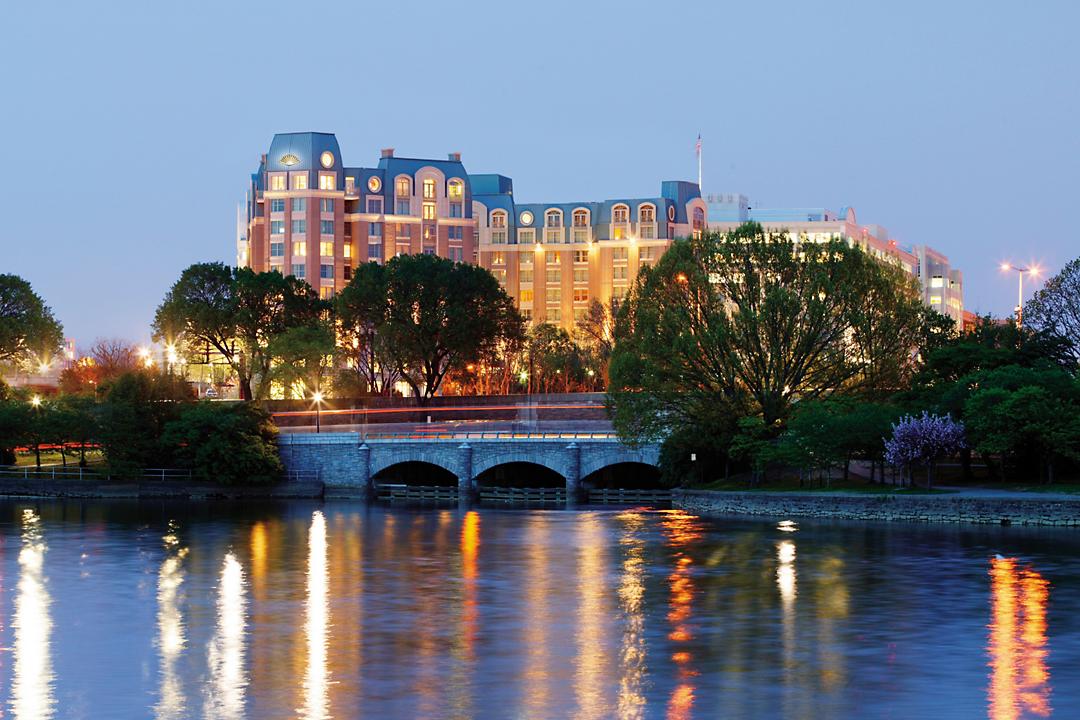
How many downtown Washington D.C. hotels can you think of that are on the waterfront? Not only is the Mandarin Oriental set on the Washington Channel (which leads to the Potomac River, which feeds into Chesapeake Bay and finally, the Atlantic Ocean), but it overlooks a marina that could be San Diego Bay or Miami Beach if you didn't know you were in D.C. And yet, it's a short walk via a footpath to the Washington Monument, the Tidal Basin, the National Mall and all the beautiful memorial parks, not to mention the cherry blossoms and the White House, the latter just 20 minutes away by foot.
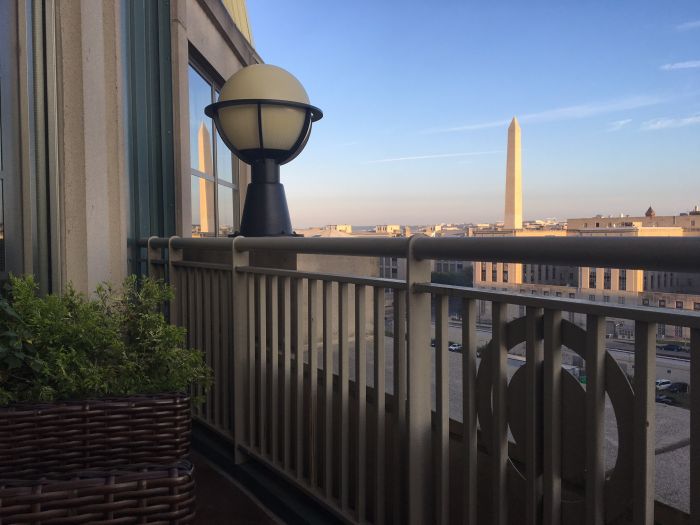
The prescient Mandarin Oriental Group, based in Hong Kong, saw in 2004 that this location in undeveloped southwest Washington might just be ideal for visitors to the nation's capitol despite the fact that, at the time, the surrounding neighborhood consisted of nothing but railroad tracks, freeways and office buildings. They must have thought, "If we build it, they will come." And come they did, finally, in the form of The Wharf, a one-mile, $2.5 billion stretch of restaurants, residential condominiums, and 6,000-person entertainment venues that just opened this month. It also includes one structure that was already there: the D.C. Fish Market, the oldest operating fish market in the country. Although energetic guests could walk to The Wharf, it's that close, you can also take a ferry directly from the hotel to get there.
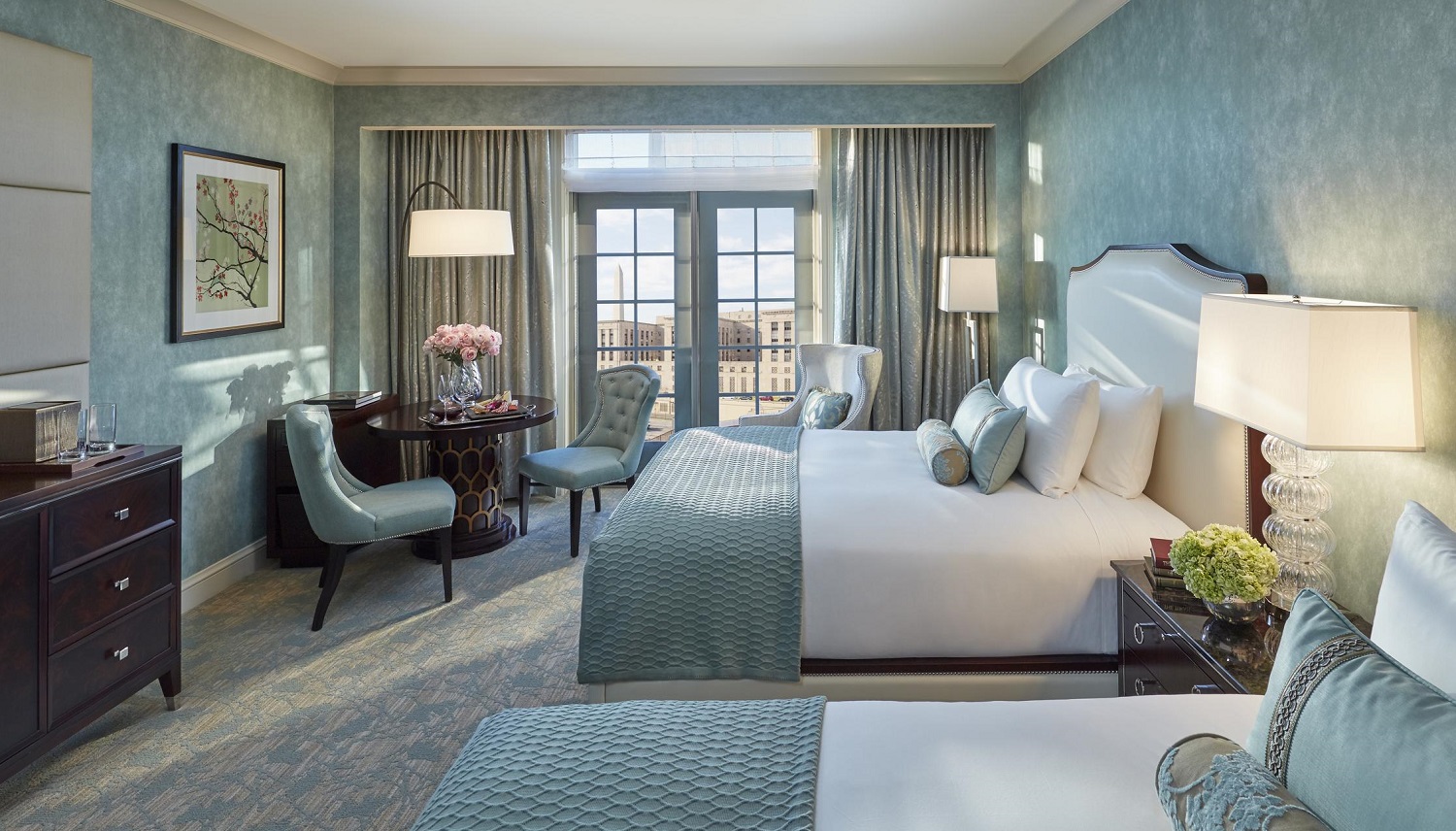
From many of the corner rooms of this elegant 370-room hotel, which has just been renovated to the tune of $30 million, you can see both the Jefferson Memorial and the Washington Monument, with the Tidal Basin directly in front of you. The rooms open to an entryway so that guests are not immediately presented with just the bed and bedroom accoutrements. Guest rooms have been upgraded with the latest high-tech equipment including streaming capability on the TV and outlets beside the headboards for using laptops and Internet while working on the comfortable beds, which managers say is the norm now more than at a desk, the latter which has been eliminated.
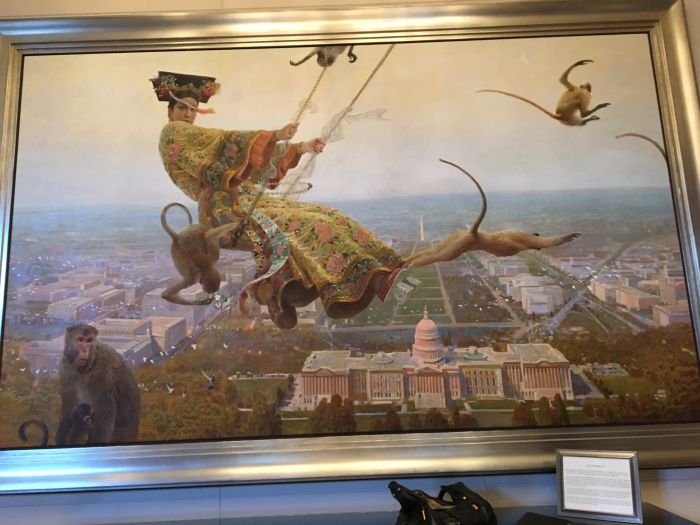
Elegant Asian touches can be seen and felt throughout the property, starting with the enormous painting in the lobby commissioned by the Mandarin, by artist Zhong-Yang Huang, entitled Above the Forbidden City. It's the Washington interpretation of the artist's piece in China that depicts the last Empress of China swinging over Beijing with her beloved monkeys, only this beautiful piece depicts her swinging over D.C. The Feng Shui expert who made sure the Mandarin Oriental fulfilled ancient traditions of light and space in constructing the building, told the Mandarin they must show more than the six monkeys depicted in the newer painting, so the artist added the tail of a seventh monkey so as not to disturb the hotel's mood.
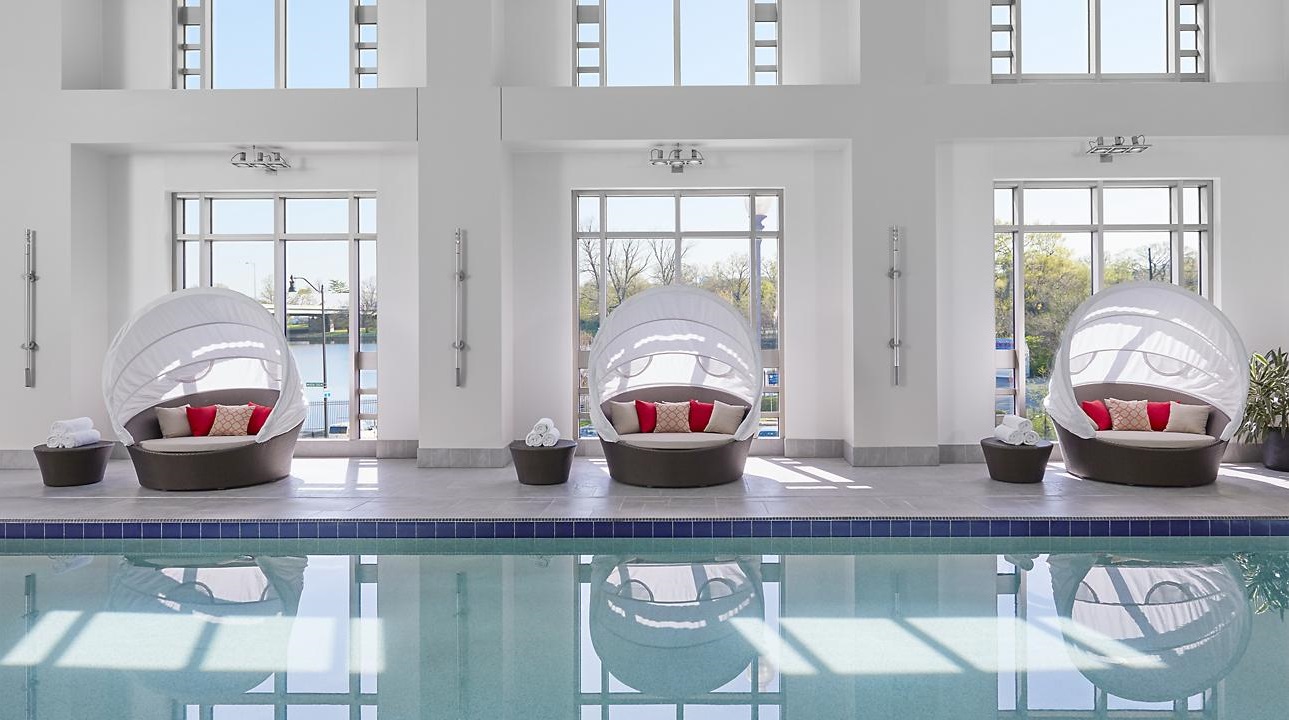
Further enhancing the blending of Eastern and Western philosophies at the Mandarin, in addition to the usual American and continental fare, as well as the Maryland crab specialties in the restaurant and on room service menus, you can order Spicy Dan Dan Noodles, Vietnamese Beef Pho, Tom Kha Soup and other Eastern specialties. In the spa you can request an Oriental Bamboo Massage using warm bamboo sticks to knead and stretch the muscles.
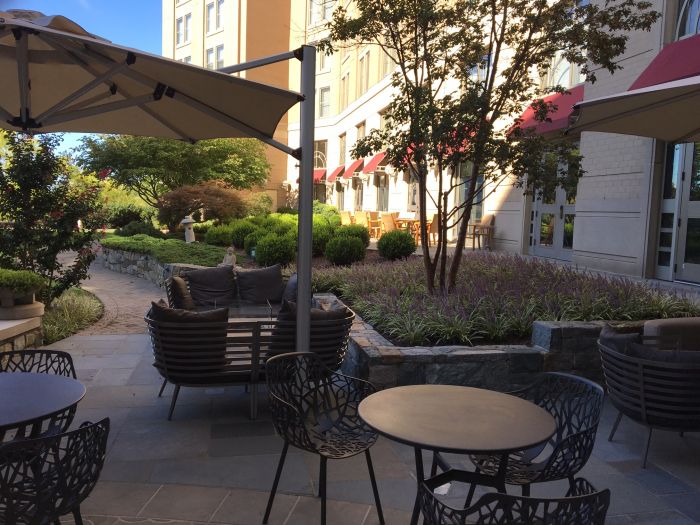
The surprise within this calm and soothing atmosphere of a D.C. hotel that somehow seems much further away from the bustle of Washington than it is, is the short time it takes to walk, or taxi, to some of the many museums included within the Smithsonian Institution's complex—all free to the public; two of which have either been reopened just this fall or opened for the first time. The Freer/Sackler Museums, home to some of the world's most important holdings of Asian art, reopened in October after a building renovation, with a festival of Asian art, food and culture. The brand new Museum of the Bible is a stunning, 430,000-square-foot building with a 150-foot-long digital ceiling with constantly changing biblical art and images, a virtual trip showing where and how the Bible has impacted Washington, D.C. Visitors will also find a childrens room with interactive exhibits, a cafe named "Manna," and a dramatic entrance with 40-foot-tall, engraved bronze doors depicting the first mass-produced, movable metal type used for the Gutenberg Bible, with writings from the book of Genesis.
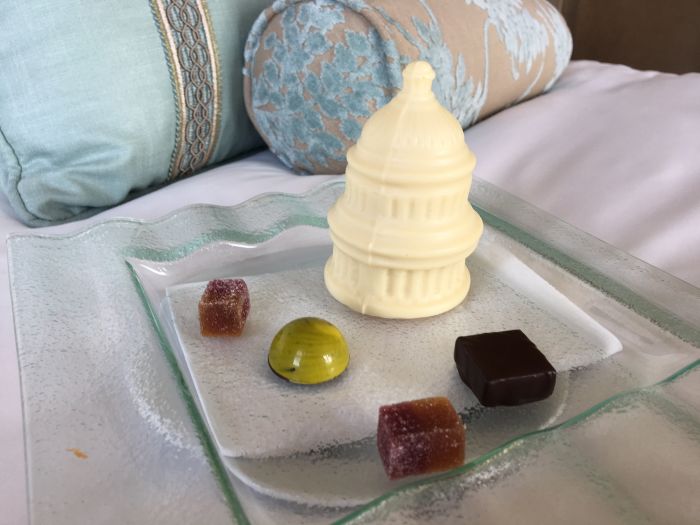
Each of the many Mandarin hotels around the world tries to take on the feeling of the city where it is. The sites all around this one are clearly none other than Washington, although once you're within its walls there is, thankfully, no sign of the continuous political chaos just outside its front door.









